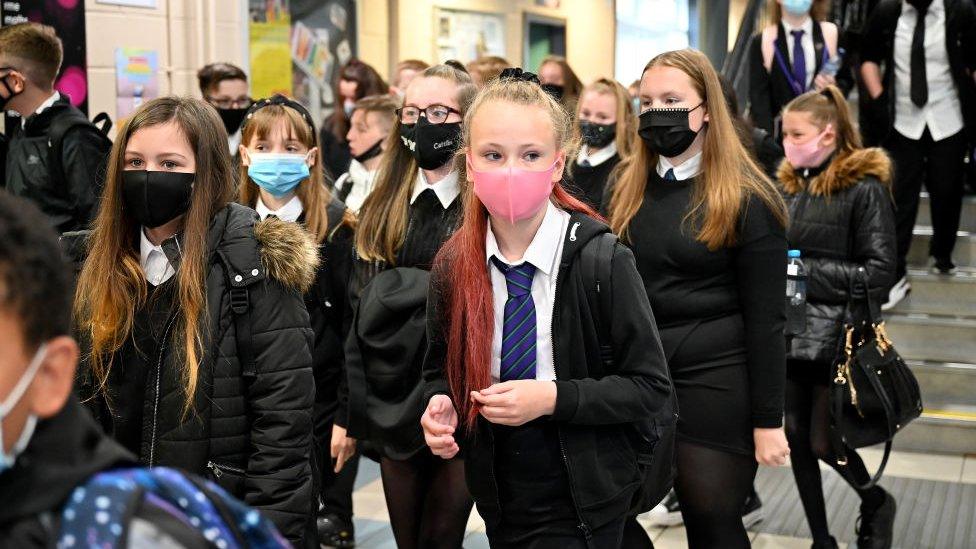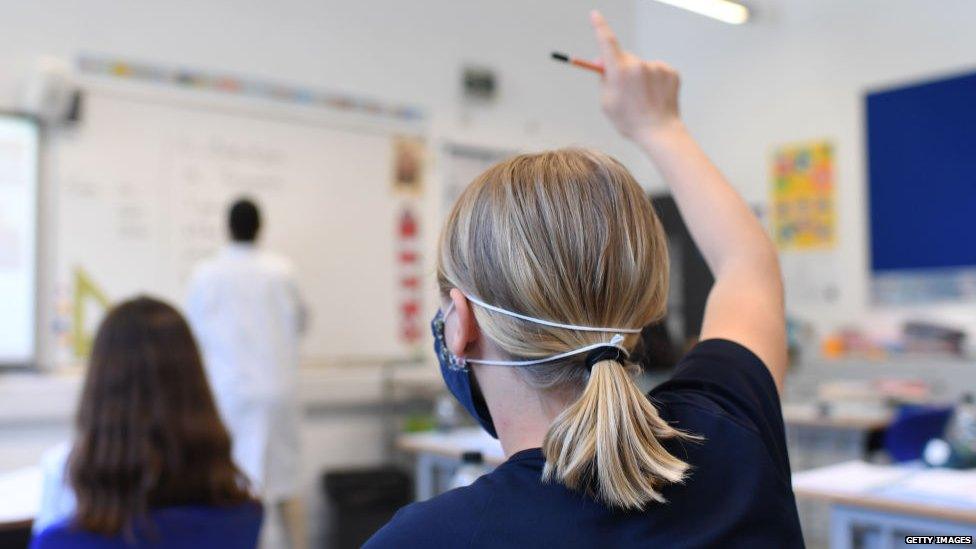Covid: 'No evidence' schools spread lots of coronavirus
- Published
- comments

Schools do not appear to play a big role in spreading coronavirus, say UK researchers who have studied teacher and pupil absences during the pandemic.
The University of Warwick team looked at sick days taken because of Covid during the autumn 2020 term in schools across England.
Absences matched infection rates in the wider community, with no evidence schools were a major driver of cases.
The prime minister is yet to announce plans for reopening schools.
English schools will not return before 8 March, Boris Johnson has said.
The Northern Ireland Executive is also yet to decide if some or all pupils can return on 8 March.
But in Scotland and Wales the youngest primary-school pupils are due to return on 22 February.
Face-to-face learning
Since the beginning of January, when the current lockdown began, primary and secondary schools have offered remote learning for most pupils.
Vulnerable pupils and children of key workers have been able to attend for face-to-face learning.
BBC Health Correspondent Laura Foster explains what schools are doing to keep pupils safe
The University of Warwick researchers say the decision on schools must be a political one, balancing the social and educational benefits of letting more children return to the classroom against the potential Covid harms.
Children can catch and spread coronavirus but are unlikely to become very sick with it.
Continuing uncertainty
The study was unable to determine whether any infected staff or pupils had caught the virus in the school setting.
Co-researcher Dr Mike Tildesley said: "We are not saying there is no risk.
"It's an absence of evidence."
There was continuing uncertainty about the impact reopening schools might have on the pandemic.
And a cautious approach was needed, he said.
'Political decision'
In the study, Covid-related absences were lower in primary schools than secondary.
And there was a significant rise in secondary schools in the South East and Greater London in December, which might be linked to the more transmissible variant of the virus identified in Kent.
Dr Tildesley said: "You could potentially think about doing early years first.
"But this is a political decision."
The Public Health Agency says school transmission "does occur but tends to be small scale".
Prof Sarah Lewis, an epidemiology expert at the University of Bristol, said it appeared that cases in the community were spilling into schools rather than vice versa, based on the available data.

LOOK-UP TOOL: How many cases in your area?
SCHOOLS: When will they reopen?
THE R NUMBER: What it means and why it matters
COVID IN SCHOOL: What are the risks?
LOCKDOWN LEARNING: What are the BBC's lockdown lessons?

Related topics
- Published15 February 2021

- Published23 February 2022
